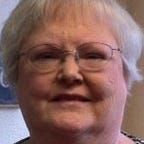City slicker moving to a small town
I lived in big cities before retiring and moving in June 2016 to a small town in Kansas.
I met a special friend named Tari. She knows half of the town and is related to/has adopted the other half. She has a big heart and is an “unofficial grandma” for many families in the area. She lived in the town most of her life.
We were driving down the street and I noticed a women pulling two kids in a red wagon. Tari told me the name of the grandmother and the names of the two grandkids in the wagon. I never would know that in a big city like Washington D.C.
Then I observed a man riding a lawn mower on the street. Tari told me his name and his history. I never would see that in Denver, Colorado.
Then I noticed another woman walking down the street. Tari told me her name and that she was heading to the one bar in town to get her husband to come home for dinner. Too many bars in a big city like Seattle, Washington.
We went into a locally owned grocery store and the woman behind the deli counter hugged Tari and said “Hi, grandma!” She was one of Tari’s many “adopted” grandkids.
We can drive down the street and Tari can tell me who lived in what house and their whole family history. She recognizes the cars and who owns what car.
Tari talks to anyone, anywhere, whether she knows them or not, and they become new friends. When we went into a doctor’s office, Tari introduced me to five people who were all her relations or friends. I could not keep up with all of the names and who was related to whom.
I was a city slicker, Tari was a farm girl. She offered to take me “snipe hunting”, which is a trick played on innocent visitors or new residents. Fortunately, I found out the truth (there is no such thing as a snipe) before she had a chance to do it.
I also prefer to get my meat wrapped in plastic from the grocery store without knowing the gory details of how it got there. I got plenty of details from Tari and her friends about how the farmers butchered.
I am used to city paved roads and streetlights. Not country roads with no pavement and a light once maybe once a mile. We went out looking at Christmas lights and decorations and took a wrong turn. We were in the dark in the country at a five-way intersection with no lights.
Landmarks are different in the city and the country. I use city landmarks such as shopping malls or restaurants. Tari and I were driving on a country road and she was looking for the first white barn as a landmark. Someone else built a new white barn before the one she was looking for and we were lost!
Tari also uses gravel pits and other country sites for landmarks. I am not used to looking for the “first gravel pit on the left” as a landmark.
Tari also invited me to a local 4J Cowboy church with warm, loving people and I become part of the church family. The Concordia church has a mural of two cowboys with their horses kneeling before the cross. 4J Cowboy churches are in the mid-west, in small towns and in the country, not in a big city.
There is a community center with social activities and crafts. I volunteered there to help seniors with computers and their cell phones. When I was on a trip to see relatives and did not attend, everyone wanted to know if I was OK and where I was and what I was doing.
I experienced a sense of community that was new for me. This whole experience makes me wonder if it is better for people to live in small towns. People get to know each other and support each other.
I did find support in the big city, primarily through fellowship in churches. The sense of community, of belonging to a town and its people, did not happen until I moved to a small town in Kansas.
